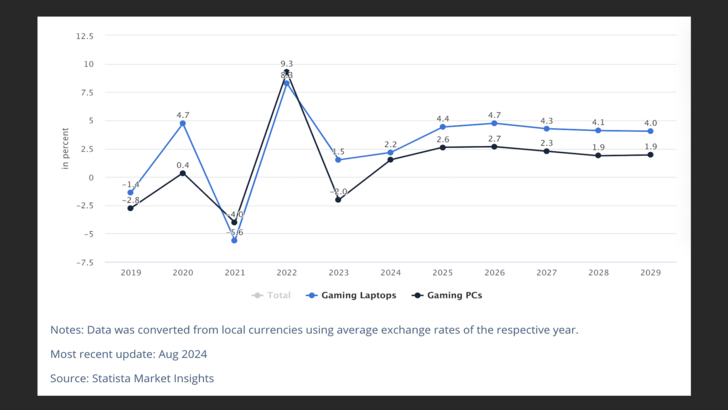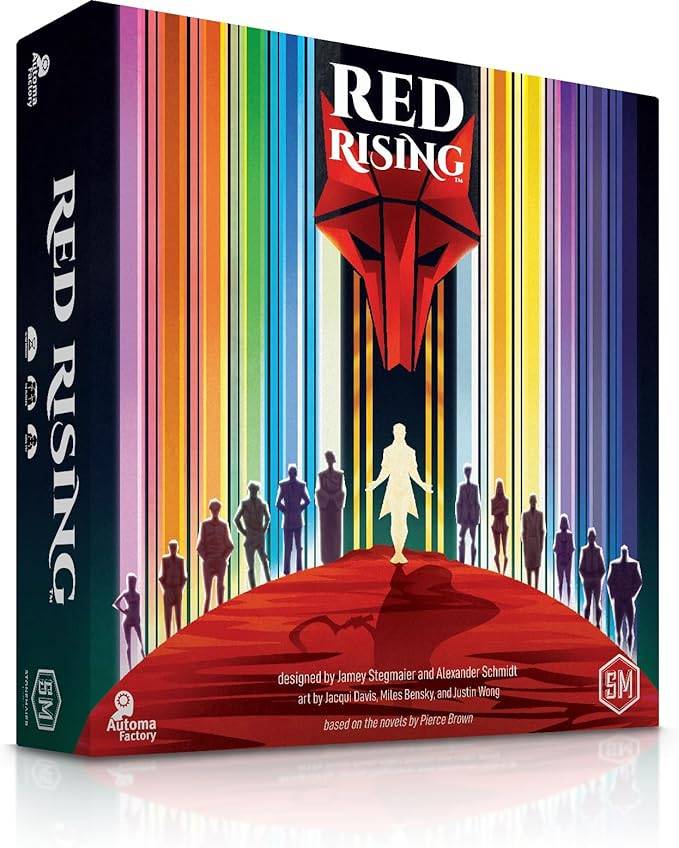Japan's PC Gaming Surge Defies Mobile Trend

Japan's PC Gaming Market "Triples in Size" Following Steady GrowthPC Gaming Accounts for 13% of Japan's Total Gaming Market

While its growth from 2022 only rose by about $300 million USD, the consistent expansion has led the PC gaming segment to comprise 13% of the mobile-dominant Japanese gaming market. Although the figures "may seem small in USD," as Dr. Serkan Toto points out, "the Japanese yen has been very weak recently," suggesting higher spending in local currency.
Japan's gaming market is largely driven by mobile gaming, which significantly surpasses the PC segment, according to additional data from industry analysts. For comparison, Japan’s mobile gaming market—including online sales like microtransactions—reached $12 billion USD, approximately 1.76 trillion Yen, in 2022. "Smartphones remain Japan’s primary gaming platform," Dr. Serkan Toto stated in a report. Additionally, Japan's "anime mobile games" market constitutes 50% of global revenue, per Sensor Tower's "2024 Japan Mobile Gaming Market Insights" report.

Industry experts believe the substantial growth of Japan's "Gaming PCs & Laptops market" stems from "consumer preference for high-performance gaming hardware and the rising popularity of esports." A Statista Market Insights report projects Japan's PC gaming market revenue to surge to €3.14 billion this year, roughly $3.467 billion. The company's data indicates that "the Gaming PCs & Laptops market will see approximately 4.6 million users by 2029."
"Japan boasts a rich history of early PC games, originating on domestic computers in the early 1980s," noted Dr. Sekan Toto in a study. "While consoles and later smartphones gained prominence, PC gaming never truly disappeared in Japan; its niche status has been somewhat overstated." He attributes Japan's PC gaming resurgence to:
⚫︎ Rare yet impactful homegrown PC-first titles such as Final Fantasy 14 or Kantai Collection
⚫︎ Steam's significantly enhanced Japanese storefront and expanded reach
⚫︎ Increasing availability of smartphone games on PC, sometimes concurrently
⚫︎ Improved domestic PC gaming platforms; alongside Steam's broader presence and improved Japanese storefront
Xbox, Square Enix, and Other Gaming Titans Expand PC Segment

One such instance is Square Enix bringing Final Fantasy 16 to PC earlier this year. The gaming giant has also confirmed its strategy of a dual release on both console and PC.

-
1

Sakamoto Puzzle Unravels in Japan
Jan 27,2025
-
2

Arise Crossover Trello and Discord
Mar 16,2025
-
3

Slither, Compete and Outlast Your Opponents in New Game Snaky Cat
Feb 26,2025
-
4

Roblox King Legacy: December 2024 Codes (Updated)
Dec 24,2024
-
5

Roblox Forsaken Characters Tier List (2025)
Feb 25,2025
-
6

Eighth Era celebrates 100,000 downloads with a limited-time Era Vault event
Mar 17,2025
-
7

Google Play Awards 2024 winners include Squad Busters, Honkai: Star Rail, and more
Jan 09,2025
-
8

Select Quiz lets you test your knowledge across multiple topics
Mar 17,2025
-
9

Alien: Romulus 'Fixed' Terrible Ian Holm CGI for Home Release but Fans Still Think It’s Pretty Bad
Mar 03,2025
-
10

Roblox: DOORS Codes (January 2025)
Jan 07,2025
-
Download

Magnet Hero
Action / 45.6 MB
Update: Feb 11,2025
-
Download

Bulma Adventure 2
Casual / 57.55M
Update: Mar 09,2024
-
Download

!Ω Factorial Omega: My Dystopian Robot Girlfriend
Casual / 245.80M
Update: Sep 10,2024
-
4
FrontLine II
-
5
ALLBLACK Ch.1
-
6
IDV - IMAIOS DICOM Viewer
-
7
Escape game Seaside La Jolla
-
8
Color of My Sound
-
9
Mr.Billion: Idle Rich Tycoon
-
10
beat banger














